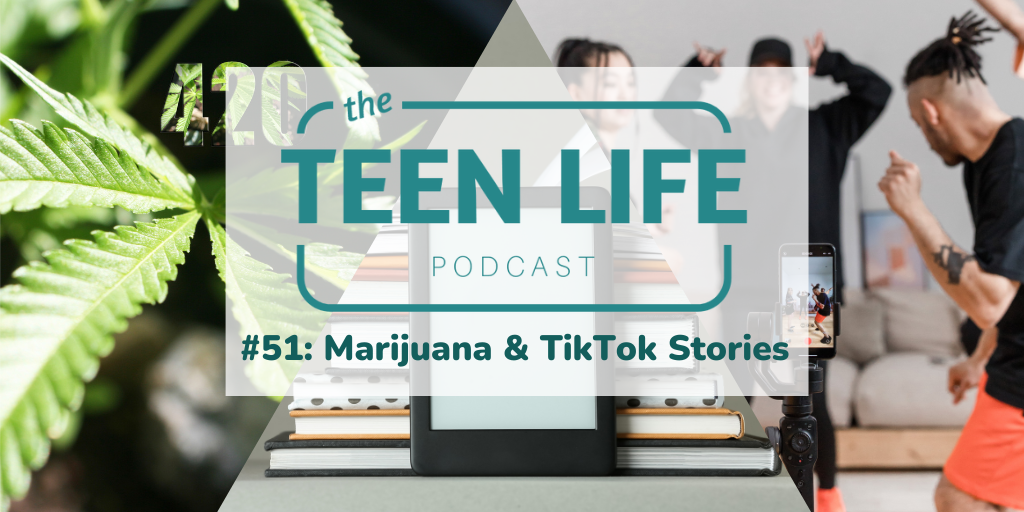
Ep. 51: Marijuana & TikTok Stories
Podcast: Play in new window | Download
Do you know the warning signs that your teen is using drugs? In episode 51, Chris and Karlie discuss marijuana laws, use, and paraphernalia. They take a quick dive into what to look for and how to talk with your teen about the effects of marijuana use on teens. You’ll also get an update on social media trends, specifically in TikTok. Then, don’t miss Karlie’s tip this week on how to read and listen to more books for free!
Resources:
- History.com: The Hazy History of ‘420’
- Teen Life Podcast
TL Selects: Substance Abuse with Sara Kaylor
Episode 16: Role Models & Drug Slang
Episode 30: Red Ribbon Week & Trending Shows - The Insurance Institute for Highway Safety (IIHS): Marijuana Laws
- VeryWellFamily: Teen Drug Use Warning Signs
- DrugFree.org: Marijuana: What You Need to Know to Help Protect Children, Teens and Young Adults
- Nylon.com: TikTok Expands Stories Feature in Battle Against Instagram
- Libby App
- Podcast music by Luke Cabrera and Tobin Hodges
Have a question?
If you have a question about something you heard or just want to give us some feedback, please leave us a comment below. We would love to hear from you!

Chris Robey
Former CEO

Karlie Duke
Communications Director
Karlie Duke | Director of Communications
Karlie has always had a heart for teenagers. Through her role at Teen Life, she loves to showcase the amazing stories coming out of Support Groups, but she is especially passionate about helping adults and teenagers find connection. Karlie has a BS in Communications with a minor in Family Studies from Abilene Christian University.
Chris Robey | Former CEO
Chris has spent most of his career empowering teenagers from all backgrounds. As the former leader of Teen Life, he is passionate about helping students make good choices while also giving adults the tools they need to communicate more effectively with teens. Chris is a graduate of Midwestern State University and holds a Master’s Degree in Family Life Education from Lubbock Christian University.







